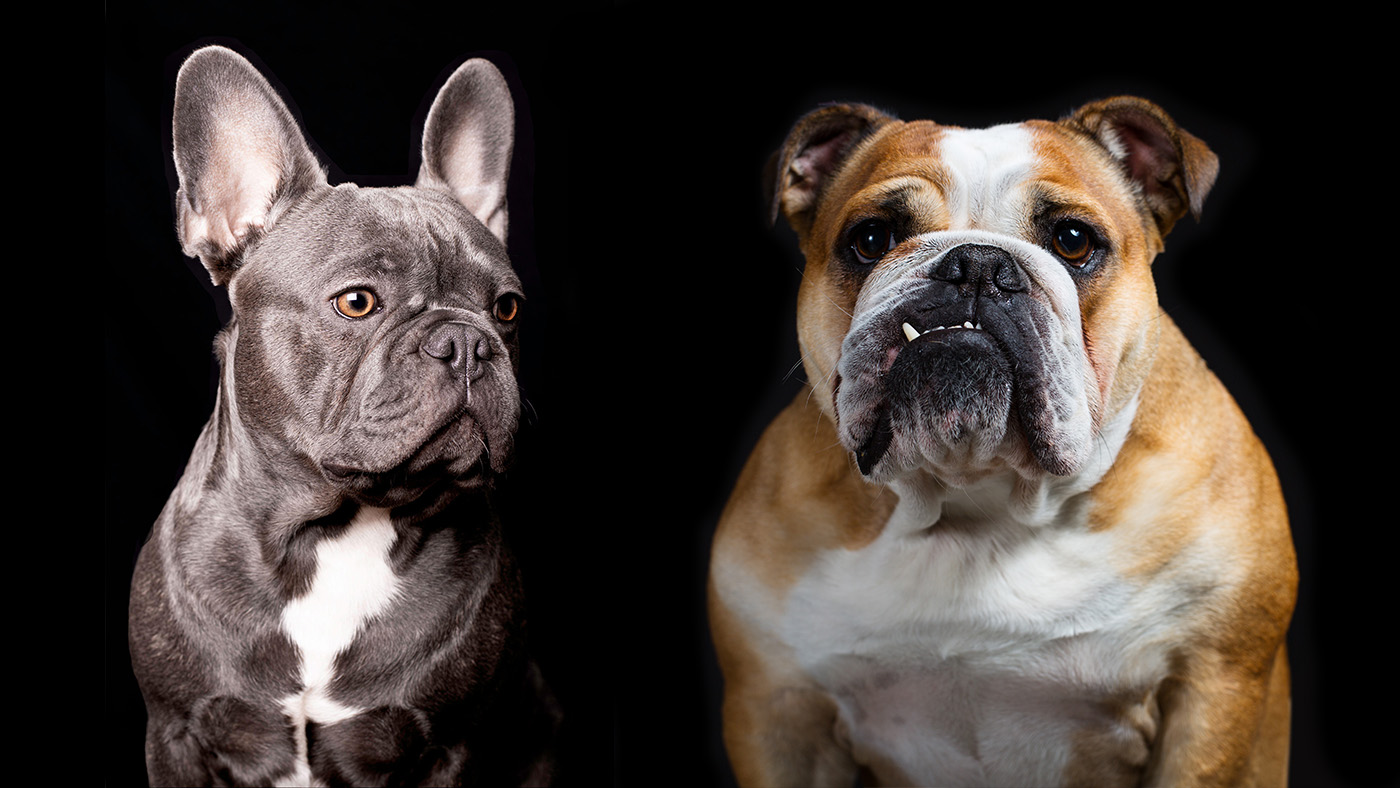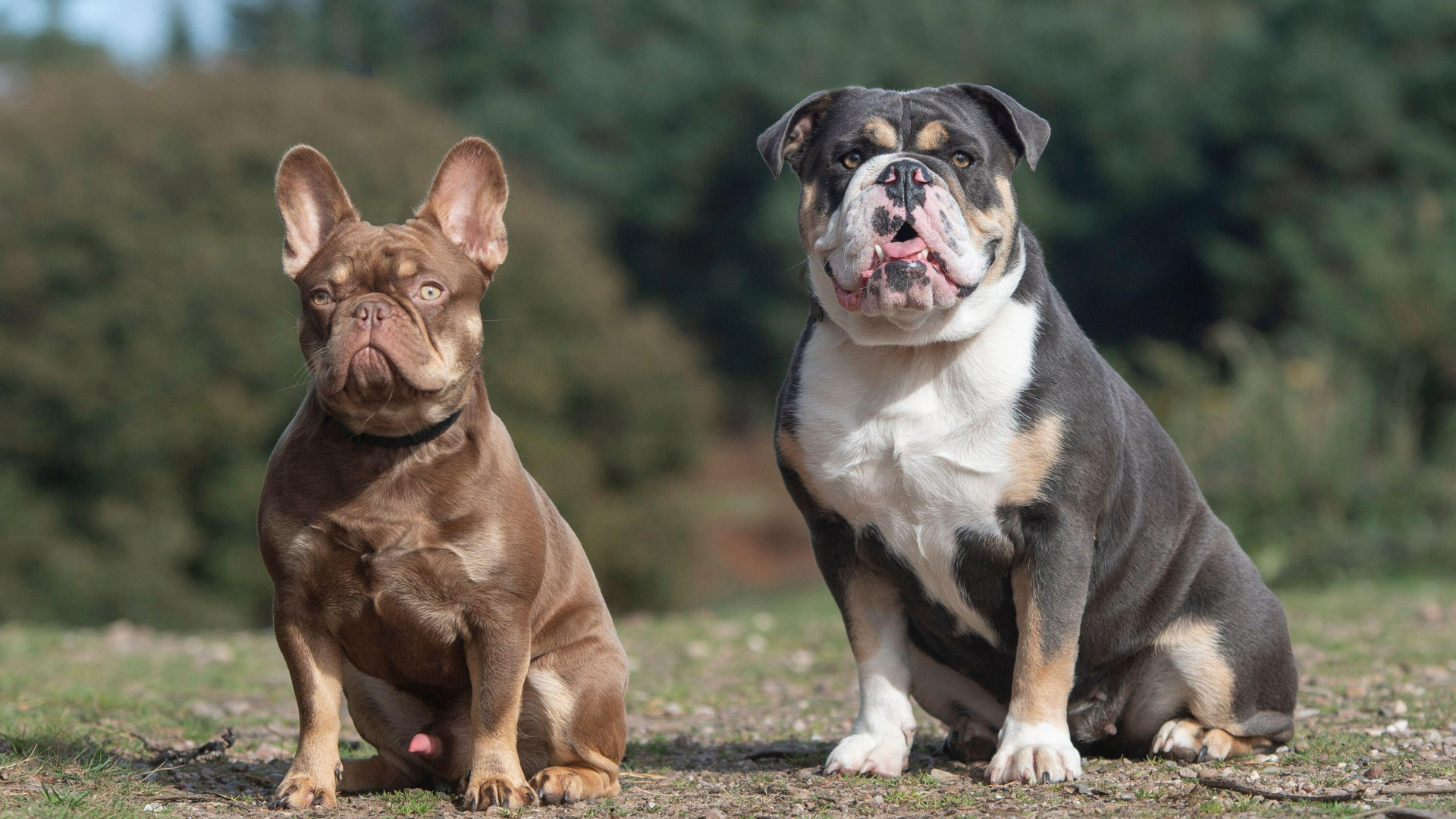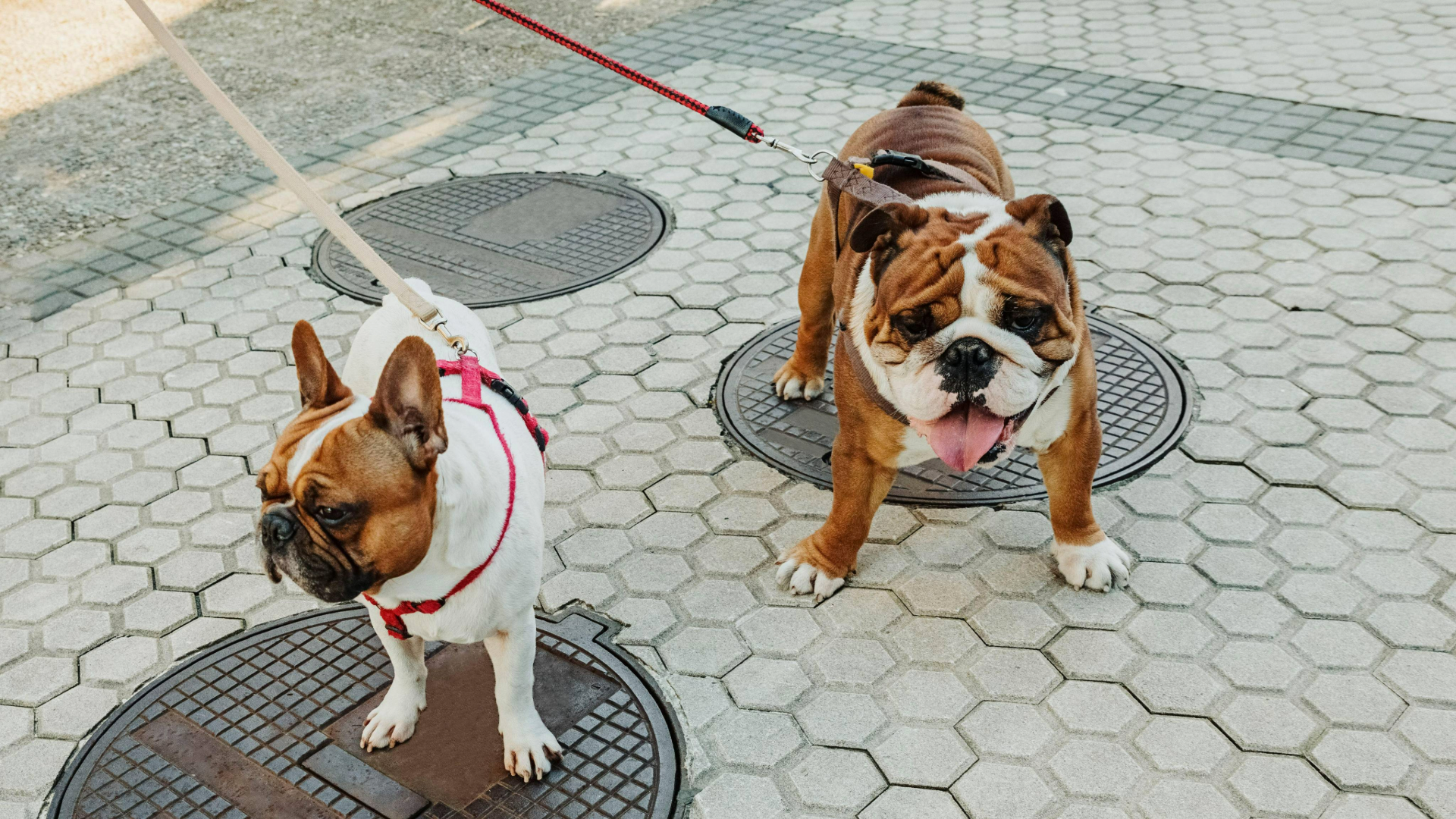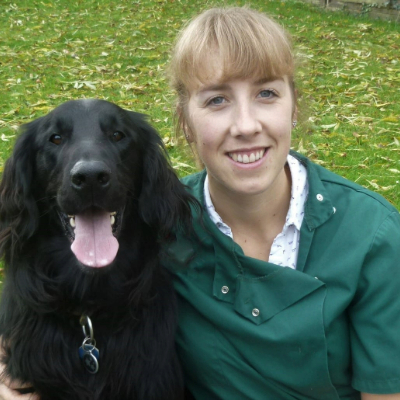French Bulldog vs. English Bulldog: A breed comparison
A vet reveals the similarities and differences between French and English Bulldogs

If you've ever wondered about the difference between a French Bulldog and an English Bulldog, you're in the right place. With the help of expert vet Dr. Rebecca MacMillan, we've compared these two beautiful breeds – from their appearance and grooming needs to their temperament and health considerations.
French Bulldogs have been America's most popular dog breed for the past three years, according to the American Kennel Club – and we're not surprised! Not only do they have the sweetest little faces, but their compact size and easygoing nature make them a great choice for many owners.
As for the English Bulldog, they're slightly bigger and broader (but equally as cute!) and have a friendly personality that makes them great around people.
To learn more about these breeds, keep on reading!
French Bulldog vs. English Bulldog: Size
French Bulldogs are considerably smaller, standing between 11–13 inches tall and weighing less than 28 pounds. Their compact size makes them one of the best dog breeds for apartments, and they don’t require as much exercise compared to larger breeds.
English Bulldogs are bigger, measuring between 14–15 inches in height, with females weighing around 40 pounds and males around 50 pounds. Their heads are also noticeably larger than a Frenchie's.

French Bulldog vs English Bulldog: Appearance
French Bulldogs are lighter, smaller, and narrower, with upright, pointed 'bat ears'. They have a square-shaped head, a slightly rounded forehead, and a broad muzzle. As for their physique, Frenchies have muscular legs, broad chest, and a strong back. You'll usually find them in white, cream or fawn.
PetsRadar Newsletter
Get the best advice, tips and top tech for your beloved Pets
English Bulldogs are considered medium-sized and have a large head with deeper wrinkles and floppier jowls than the French. Their ears are rounded, their shoulders are wide, and their neck are strong and short. The English bulldog also has a broad chest, a straight or screwed tail, and muscular legs.
Since both of these breeds have flat faces and short muzzles, they are brachycephalic breeds that are more susceptible to health problems (which we'll get into later)..
French Bulldog vs English Bulldog: Temperament
While both of these breeds are confident and friendly, Dr. MacMillan says the English Bulldog is the biggest softie of the two.
She says: "English Bulldogs are very good around other people, pets, and children, whereas the French Bulldog can take a while to warm up to strangers and can be choosy about family members.
"As with any dog breed, this will be dependent on early socialization, training, and genetics, though. Out of the two, I find that the French Bulldog tends to be the more lively, playful, and active."

French Bulldog vs English Bulldog: Exercise needs
Both breeds require moderate exercise, so if you're looking for one of the best dogs for runners, they won’t be the right choice for you.
Frenchies enjoy rally, obedience, and agility, so you'll want to stock up on all the best dog toys to keep them mentally active. English Bulldogs sometimes enjoy wading in very shallow water, but it shouldn’t be deeper than their elbows, and you'll need to supervise them constantly.
Dr. MacMillan says: "Don’t expect either of these dogs to be going jogging or hiking with you, their moderate exercise needs means that they would suit an owner with a more sedate lifestyle."
Since both of these breeds are flat-faced, they tend to have breathing problems and are prone to overheating, so they should never be overexerted in hot or humid conditions.
French Bulldog vs English Bulldog: Grooming
Thanks to their short, smooth coats, both of these breeds are low-maintenance when it comes to grooming. However, since the English Bulldog sheds slightly more, you'll want to brush them more frequently to remove loose fur – Dr. MacMillan suggests a couple of times a week.
While grooming is a piece of cake, they can suffer from skin problems, which is why it's "important to carefully clean and dry in between their skin folds regularly to stop infections from occurring."
As with any breed you bring home, you'll need to stock up on the best dog brush and best dog shampoo.

French Bulldog vs English Bulldog: Health considerations
French and English Bulldogs are brachycephalic (or flat-faced), and are prone to multiple health conditions.
Due to their narrowed airways, they tend to have breathing issues, exercising intolerances, and snoring, and are more at risk for heatstroke.
Dr. MacMillan says, "Both these wrinkly breeds are susceptible to skin complaints like skin fold dermatitis and allergies, though in my experience, I see more French Bulldogs for skin allergies than I do English ones. French Bulldogs are also at increased risk of spinal problems like intervertebral disc disease, which can cause pain and paralysis, although it can affect English Bulldogs, too.
"Both breeds are prone to running into difficulties during labor, and many are unable to have puppies without assistance. They are also prone to obesity, so watching the weight of your English or French Bulldog is crucial."
French Bulldog vs English Bulldog: Owner suitability
Now that you know everything about French Bulldogs vs. English Bulldogs, it's time to decide which one (if any) is right for you. While factors like size, grooming, and exercise needs might be important, Dr. MacMillan says there's one other key factor it all comes down to...
"Both French and English Bulldogs would be best suited to an owner that can either afford to comprehensively insure their pet, or who could cover the cost of veterinary bills themselves.
"Both breeds are prone to multiple health issues, so you must factor this in when purchasing your pet. I have seen many bulldog owners come unstuck over the years, particularly if their dog develops an ongoing and incurable issue such as allergic skin disease. The costs can start to add up over months and years."
Keen to learn about some other breeds? Read: Chihuahua vs. Pomeranian or English Bulldog vs boxer.

Rebecca is a veterinary surgeon who graduated in 2009 from the Royal Veterinary College in London. She has a wealth of experience in first opinion small animal practice, having done a mixture of day-to-day routine work, on-call emergency duties and managerial roles over the years. Rebecca enjoys medicine in particular and she is proud to have recently achieved a BSAVA postgraduate certificate in small animal medicine (with commendation).
Edited by Georgia Guerin and Alexis De Leaver.
Recent updates
This page was last updated in April 2025 by Megan Milstead.

Megan is a Staff Writer at PetsRadar, covering features, reviews, deals, and buying guides. She has a wealth of experience caring for animals, having grown up with dogs, cats, horses, guinea pigs, and more throughout her life. She studied BA Journalism at the University of Westminster, where she specialized in lifestyle journalism and was editor of Smoke Radio’s lifestyle website. Megan works alongside qualified vets and accredited trainers to ensure you get the best advice possible. She is passionate about finding accurate and helpful answers to your pet-related questions.
